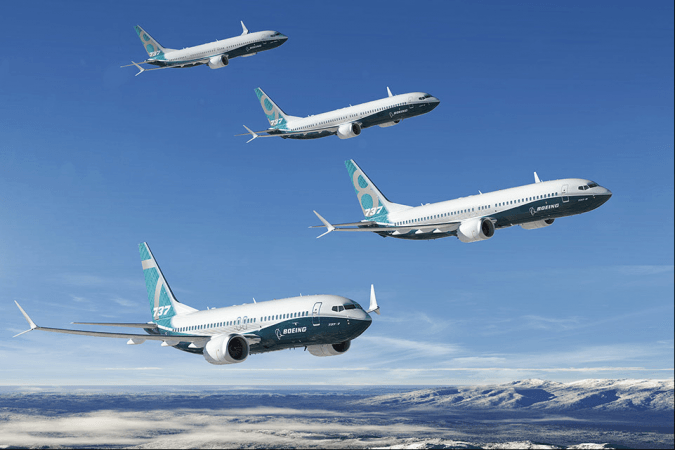
The insurance payout on the beleaguered Boeing 737 MAX aircraft, after two crashes claimed 346 lives, will likely be the biggest ever, said S&P Global Ratings.
Marc-Philippe Juilliard, a director with S&P, told reporters that the twin crashes and the subsequent global grounding of the aircraft since March amounted to the "worst disaster in the history" of aviation insurance.
Besides the accidents, insurers and re-insurers must also cover the costs of grounding the aircraft which will rise the longer it lasts, Juillard said, adding that it was "too early" to estimate the eventual payout.
Grounding Liability Coverage
Although the aerospace insurance and reinsurance market will face aircraft hull and passenger liability claims from the two crashes, the bulk of the overall exposure will come from grounding liability coverage, a component of an aircraft manufacturer's product liability coverage that pays out if a type of aircraft is grounded over safety concerns.
Ethiopian Airlines had earlier said there were 35 nationalities represented on Flight ET302, and so "the potential for very large passenger liability claims is there".
Boeing has repeatedly been forced to push back the expected clearance of the aircraft by aviation regulators as a series of problems have come to light, stoking demands from airlines with the 737 MAX or waiting on deliveries, for compensation over their loss of business.
Many are now fixing December as the most probable month for the plane to resume flying again but there is considerable uncertainty still if that will be possible.
"We will be able to talk (about the cost) when the airplanes begin to fly... but clearly that is going to cost money," Juillard said.
Second-Quarter Loss
Boeing reported a second-quarter loss of nearly three billion dollars, largely due to the problems with the 737 MAX.
The US aviation giant has said that so far total costs come to about eight billion dollars, including a charge of $5.6 billion to cover possible airline compensation claims.
Media reports indicate that nearly 400 737 Max 8s in operation were grounded by regulators across the world in March, following two fatal crashes of the jet in less than five months.














